"Love's Labour's Lost"
Wednesday, January 7, 2026
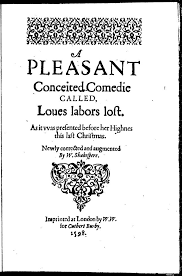 The name of this early comedy by William Shakespeare, written in the mid-1590s, makes a great title for this article by Paul Whitelock. The name of this early comedy by William Shakespeare, written in the mid-1590s, makes a great title for this article by Paul Whitelock.
It tells of a personal epiphany for him around the time of the Epiphany or Dia de Reyes, yesterday 6th January, 2026.
Original poster [Wikipedia]
Diary of a Nobody
This article is about the love and respect that I have recently lost for two Labour (socialist) prime ministers of European democratic countries. These are Pedro Sánchez, presidente del gobierno of Spain and Sir Keir Starmer, prime minister of the United Kingdom of Great Britain and Northern Ireland.
 
Pedro Sanchez [Facebook] Sir Keir Starmer [Independent en español}
My political origins
 I am a social democrat by instinct - I voted Liberal, LibDem and, in 1997 and 2001, New Labour in the UK, and if I could vote in Spain, where I have been resident for the last 17 years, I would support PSOE over PP and the myriad of smaller parties that have popped up in recent years. I am a social democrat by instinct - I voted Liberal, LibDem and, in 1997 and 2001, New Labour in the UK, and if I could vote in Spain, where I have been resident for the last 17 years, I would support PSOE over PP and the myriad of smaller parties that have popped up in recent years.
[Wikipedia]
My current allegiance
Since I have lived in Spain I have taken a keen interest in the politics of my adopted country. I felt comfortable living in Andalucia, socialist since Spain became a democracy following the death in 1975 of the fascist dictator General Francisco Franco Bahamonde.
Yet, in rece nt years everything has changed. Lifelong socialists have suddenly realised they are conservatives and have switched their support to PP and VOX. nt years everything has changed. Lifelong socialists have suddenly realised they are conservatives and have switched their support to PP and VOX.
I have been pretty much a lone voice speaking up for socialism.
Andalucia now has a regional government which is PP; Ronda council is led by a PP mayor; the village where I cast my vote is run by the PP ("aliens" may vote in local elections, BTW, but not in regional or national ones - why is that?).
[Partido Popular]
Pedro Sánchez
 Pedro Sánchez Pérez-Castejón is the leader of the country I chose to move to 17 years ago. Pedro Sánchez Pérez-Castejón is the leader of the country I chose to move to 17 years ago.
For me he had it all when he shot to power following six years of right-wing mis-rule under the "dodgy" Mariano Rajoy.
Young, tall, good-looking and a fluent-English speaker, Sanchez was also a socialist, the secretary general and leader of PSOE.
[Wikipedia]
He first became prime minister in 2018, aged 46, after Mariano Rajoy was forced to resign; then again in 2020 as head of a coalition between PSOE and Unidos Podemos.
This ele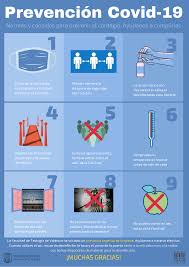 ctoral uncertainty coincided with the Covid-19 pandemic hitting the world with a vengeance. ctoral uncertainty coincided with the Covid-19 pandemic hitting the world with a vengeance.
Pedro Sanchez proved he had "cojones" by handling the crisis with a firm but deft touch.
Deaths from the Coronavirus were far fewer than had been predicted, largely because of brutal lockdowns demanded by Sánchez (cf. the chaos in England under Boris Johnson), which, although not popular, were supported by the majority and enforced by the police.
[Facultad Teologia]
 In the general election of 2023, called two years early by Sánchez, the PP, now led by Alberto Nuñez Feijoo, received the most votes but did not win enough seats (rescañas) to govern. In the general election of 2023, called two years early by Sánchez, the PP, now led by Alberto Nuñez Feijoo, received the most votes but did not win enough seats (rescañas) to govern.
He failed to form a coalition, so Sánchez had the next chance and managed to cobble together enough seats to form a coalition government with Sumar, Podemos and regional Basque and Catalan parties.
Alberto Nuñez Feijoo [El Periodico]
And this is when it all started to go wrong for Sánchez .
Meanwhile in the UK .....
 The Conservative government was lurching from crisis to crisis. The Conservative government was lurching from crisis to crisis.
The party hierarchy got rid of the incompetent Bojo The Clown; Liz Truss, who lasted five minutes and wrecked the economy; and Rishi Sunak, who was out of his depth.
All three contributed to a major lack of confidence in the Conservatives on the part of the voters .
Bojo The Clown Johnson [Facebook]
Sunak called an early general election in 2024 (Why?) and the Tories were slaughtered at the ballot box. Labour, led by former Director of Public Prosecutions Sir Keir Starmer, stormed to a landslide victory.
Sir Keir Starmer
 A working class lad, Starmer was bright and did well at school. A working class lad, Starmer was bright and did well at school.
He went on to Leeds University to read Law, gained a Masters degree from Oxford, did his articles and became a lawyer. By 2008 he was DPP, a post he held with distinction for five years.
Sir Keir Starmer [France24]
Starmer entered parliament as an MP for the first time in 2015, but quickly rose through the ranks and became party leader in 2020 following the debacle of Jeremy Corben's leadership.
I liked the "cut of his jib", and I continued to support him through all the criticism by the Tory Press, Nigel Farage, the Tory government which caused all the problems in the first place, disastrous opinion polls and the debacle of recent by-elections.
He has been effective on the international stage, but, I hate to say it, pretty hopeless at home. I've had enough.
If I had a vote in the UK - I do not - I would no longer vote Labour. I would revert to the LibDems.
Conclusion
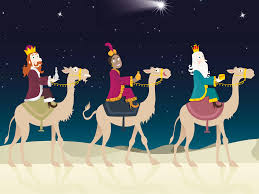 It is appropriate that I had my personal Epiphany (acc. to Webster's dictionary "a moment of sudden and great revelation or realization") at ..... Epiphany 2026, el Dia de Reyes. It is appropriate that I had my personal Epiphany (acc. to Webster's dictionary "a moment of sudden and great revelation or realization") at ..... Epiphany 2026, el Dia de Reyes.
Yes, I realised that Pedro Sanchez and Sir Keir Starmer, my great hopes for the future of Europe, weren't all they were "cracked up to be".
[Calendarr]
Pedro Sánchez and his coalition government have been mired in controversy. From alleged corruption, money-laundering and sexual misbehaviour by government ministers to controversy closer to home.
His wife, Begoña Gomez, has been accused of abusing her position as the wife of the prime minister, and his brother David Sánchez has been allegedly "up to something".
For all the good Pedro Sánchez has done, it's time for him to go - sadly!
***
As for Sir Keir Starmer, while being impressive on the European and World stages, he has looked ill-at-ease and uncertain back home.
His problems with f ormer deputy Angela Rayner, chancellor of the exchequer Rachel Reeves, a couple of defections to other parties, a Commons backbench revolt, a disastrous budget, policy U-turns, the loss of a safe seat in a by-election in Wales and terrible opinion poll ratings, the prime minister is treading on very thin ice. ormer deputy Angela Rayner, chancellor of the exchequer Rachel Reeves, a couple of defections to other parties, a Commons backbench revolt, a disastrous budget, policy U-turns, the loss of a safe seat in a by-election in Wales and terrible opinion poll ratings, the prime minister is treading on very thin ice.
Waiting in the wings to take over are the much-admired Wes Streeting, Secretary of State for Health and Social Care, and Rayner, who is very popular amongst fellow MPs.
Angela Rayner [BBC]
Sorry, Keir, you had my support for over a year. I still rate you as a statesman abroad, but you've failed dismally at home.
I'll see you at the Dole Office!
________________________________________________________________________________________
Note on Shakespeare's play
Love's Labour's Lost is one of William Shakespeare's early comedies, believed to have been written in the mid-1590s for a performance at the Inns of Court before Queen Elizabeth I. It follows the King of Navarre and his three companions as they attempt to swear off the company of women for three years in order to focus on study and fasting. Their subsequent infatuation with the Princess of France and her ladies makes them break their oath. In an untraditional ending for a comedy, the play closes with the death of the Princess's father, and all weddings are delayed for a year. The play draws on themes of masculine love and desire, reckoning and rationalisation, and reality versus fantasy.
_______________________________________________________________________________________
Links
Spain, is it really a country lacking glamour and with beaches full of drunken tourists gorging themselves on cheap beer and sunshine? | Sur in English
Why can’t we have the vote? - Secret Serrania de Ronda
© Paul Whitelock
Abbreviations and Acronyms:
BBC - British Broadcasting Corporation
PP - Partido Popular (conservative)
PSOE - Partido Socialista Obreros Españoles (socialist)
Podemos - "We can" in English (small left-wing party)
Sumar - "Unite" in English (left-wing coalition of 20 tiny parties, key coalition partner for PSOE)
VOX - Means "voice" in Latin (extreme right-wing party, close to fascism)
Pictures:
BBC, Calendarr, El Periodico, Facebook, France24, Independent en español, Partido Popular, Wikipedia,
Thanks:
Eye on Spain, MSN, Secret Serrania de Ronda, Wikipedia,
Tags:
BBC, Calendarr, Diary of a Nobody, El Periodico, Eye on Spain, Facebook, France24, Independent en español, MSN, Partido Popular, Paul Whitelock, Wikipedia,
á, é í, ó, ö
 0
Like
Published at 10:24 AM Comments (2)
0
Like
Published at 10:24 AM Comments (2)
Spain's 40th Anniversary of EU Membership
Friday, January 2, 2026
In the last 50 years two things happened that changed Spain - for ever and, in this writer's opinion, for the good.
 First of all, 50 years ago last November 20th, Franco finally left us when he died aged 95. First of all, 50 years ago last November 20th, Franco finally left us when he died aged 95.
[BBC]
His malevolent dictatorship became a monarchy within two days and after just three years Spain was a democracy again when the new constitution was agreed and implemented.
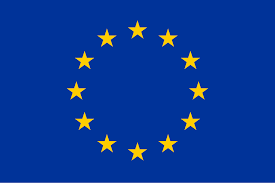 Then, the second thing that changed Spain for the better was her accession to the European Economic Commuity (now the European Union). That was 40 years ago, on January 1st 1986. Then, the second thing that changed Spain for the better was her accession to the European Economic Commuity (now the European Union). That was 40 years ago, on January 1st 1986.
[Wikipedia]
I've written about the changes following Franco's demise elsewhere (links below) so today it's the turn of the EU.
History
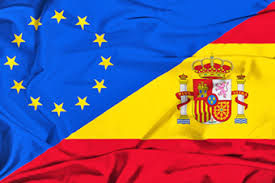 The Accession Treaty of Spain to the European Communities was signed on June 12, 1985, to enter into effect on January 1, 1986. Following this accession, Spain experienced a period of economic prosperity; during five consecutive years, it achieved the highest growth rate of the entire Community. The Accession Treaty of Spain to the European Communities was signed on June 12, 1985, to enter into effect on January 1, 1986. Following this accession, Spain experienced a period of economic prosperity; during five consecutive years, it achieved the highest growth rate of the entire Community.
[AvailableNow]
In addition to economic progress, this accession meant the end of the international isolation experienced since the Potsdam Declaration of August 1945, and the stabilisation of the recently established democracy, marking the end of the Spanish Transition.
- In the Council: Spain, which was the fifth most populous country in the Community, obtained eight votes in the council, compared to ten for the four most populous countries. The qualified majority was set at 54 votes.
- In the Commission: Spain had two of the 17 commissioners who became members of the European Commission.
- In the Parliament: 60 MEPs out of a total of 518 seats went to Spain.
According to TV channel Antena 3:
On Ist January 1986 Spain took a step forward which would change its history. Four decades after joining the EEC, the country can look back and measure the impact of that decision which sparked the modernisation of the economy consolidated democracy and redefined Spain's place in the world.
She can look back and see that the path followed together with Europe has not just been a process of political integration, but a shared history of transformation, challenges and collective ambition. What began as an open door to the future has become one of the most decisive decisions by contemporary Spain.
When Spain joined the EEC on 1st January 1986, the Spanish economy was still showing structural weaknesses, an industry in need of modernisation and a stretched labour market, but also looking forward hugely to working together with her fellow European partners.
Spain joined with enormous challenges, but also with the conviction tht Europe would be the lever to overcoming them.
The decisive impulse: From the Maastricht Treaty to the birth of the Euro (1992–2002)
 The decade of the 90s opened a decisive chapter with the Maastricht Treaty, which lit up the European Union just as we know it today and marked the path to a common curreency. The Euro, which entered circulation in 2002, did not just substitute for the peseta, it represented the consolidation of the Spanish presence at the heart of the European project It was a symbol of trust, modernisation and fully belonging. The decade of the 90s opened a decisive chapter with the Maastricht Treaty, which lit up the European Union just as we know it today and marked the path to a common curreency. The Euro, which entered circulation in 2002, did not just substitute for the peseta, it represented the consolidation of the Spanish presence at the heart of the European project It was a symbol of trust, modernisation and fully belonging.
[Wikipedia]
The hardest test: The financial crisis and the rescue of the global banking system (2008–2012)
 The explosion of the global financial crisis shook the European economy massively and Spain underwent one of its most difficult periods since the transition (following the death of Franco in 1975). The collapse of the housing sector, the massive destruction of the jobs market and tensions within the banking sector caused the country to request a financial rescue package. There were years of adjustments, uncertainty and profound social challenges. Spain restructured, the euro gained strengthand the EU recognised the need for more coordinated responses and standard mechanisms in order to confront future crises. The explosion of the global financial crisis shook the European economy massively and Spain underwent one of its most difficult periods since the transition (following the death of Franco in 1975). The collapse of the housing sector, the massive destruction of the jobs market and tensions within the banking sector caused the country to request a financial rescue package. There were years of adjustments, uncertainty and profound social challenges. Spain restructured, the euro gained strengthand the EU recognised the need for more coordinated responses and standard mechanisms in order to confront future crises.
An unprecedented challenge: the pandemic Next Generation EU funds (2020–2025)
 The Covid-19 pandemic put Europe to the test once again, this time it was simultanaeous and on all fronts: healthcare, economic and social. Faced with the gravity of the moment the Union reacted in a way never seen before: a common recovery plan to be jointly financed. The Covid-19 pandemic put Europe to the test once again, this time it was simultanaeous and on all fronts: healthcare, economic and social. Faced with the gravity of the moment the Union reacted in a way never seen before: a common recovery plan to be jointly financed.
The Next Generation EU funds offered Spain the chance to push digitalisation, ecological transition, innovation and new social policies. Between 2020 and 2025, this programme became a motor for modernising the country and for demonstrating that, faced with global crises, Europe can only advance as one.
Spain and Europe in 2026: A relationship which is strengthening and reinventing itself.
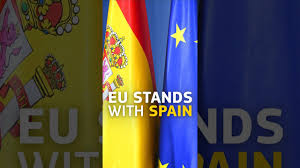 Four decades on Spain is one of the most influential countries within the European Union and, in turn, belonging to the EU has been key in transforming the country into a modern, open, diverse and competitive democracy. Four decades on Spain is one of the most influential countries within the European Union and, in turn, belonging to the EU has been key in transforming the country into a modern, open, diverse and competitive democracy.
Europe has enriched Spain with investments, stability and a greater international profile. Spain has contributed dynamism, European-ness, a capacity for consensus and a civic society which is deeply committed to the common project.
[YouTube]
Today Spain is not just in Europe; Europe is also in Spain. Together they continue to build a future in a continent which learns from the Past, moves forward with the Present day and looks at the Future with shared ambition.
Conclusion
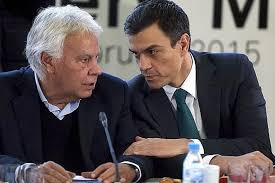 It was the foresight and resolve of a socialist (PSOE) prime minister, the long-serving Felipe Gonzalez, that took Spain into the EEC/EU in 1986. It was the foresight and resolve of a socialist (PSOE) prime minister, the long-serving Felipe Gonzalez, that took Spain into the EEC/EU in 1986.
And it is another PSOE government leader, Pedro Sanchez, who has presided over the recent period of prosperity.
Gonzalez and Sanchez [El Mundo]
 Let us hope that the Spanish voters see the light clearly soon enough to avoid the disasters that would ensue if they were to vote for a return to the dark ages of conservatism under the PP, or even worse, the catastrophe that the ultra-right VOX would wreak on the country. Let us hope that the Spanish voters see the light clearly soon enough to avoid the disasters that would ensue if they were to vote for a return to the dark ages of conservatism under the PP, or even worse, the catastrophe that the ultra-right VOX would wreak on the country.
VOX leader, Santiago Abascal [Democrata]
© The History Man
Pictures:
AvailableNow, BBC, Democrata, El Mundo, Wikipedia, YouTube
Thanks:
Translations: Paul Whitelock
Antena 3, El Mundo, Wikipedia,
Tags:
1975, 1986, Antena 3, BBC, democracy, Democrata, dictatorship, El Mundo, EEC, EU, Felipe Gonzalez, Franco, monarchy, PSOE, Paul Whitelock, Pedro Sanchez, Santiago Abascal, The History Man, VOX, Wikipedia,
 2
Like
Published at 7:08 PM Comments (4)
2
Like
Published at 7:08 PM Comments (4)
What a decade we've just lived through!
Thursday, January 1, 2026
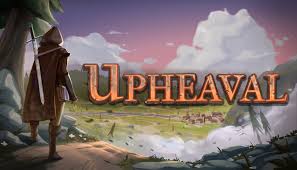 As we approach the end of 2025 it's an opportune moment to reflect on the last decade, one of much upheaval everywhere: throughout the world; in Spain; and at a personal level. As we approach the end of 2025 it's an opportune moment to reflect on the last decade, one of much upheaval everywhere: throughout the world; in Spain; and at a personal level.
[Image courtesy of Steam]
 The last 10 years have presented everyone with a deluge of challenges: Al-Qaeda, Covid-19, Gaza Strip, Hamas, Hezbollah, ISIS, school shootings, Sudan, terrorism, Ukraine, to name a few ..... The last 10 years have presented everyone with a deluge of challenges: Al-Qaeda, Covid-19, Gaza Strip, Hamas, Hezbollah, ISIS, school shootings, Sudan, terrorism, Ukraine, to name a few .....
Covid-19 jab [EL PAIS]
 ..... and at a political level: Donald Trump, Vladimir Putin, Kim Yong Un, Viktor Orban, Bojo "The Clown" Johnson, Liz Truss, Rishi Sunak, Pedro Sanchez, Emmanuel Macron, Xi Jinping ..... ..... and at a political level: Donald Trump, Vladimir Putin, Kim Yong Un, Viktor Orban, Bojo "The Clown" Johnson, Liz Truss, Rishi Sunak, Pedro Sanchez, Emmanuel Macron, Xi Jinping .....
"Bojo The Clown" [YouTube]
 ..... and the rise of ultra-right political parties in Western countries, eg AfD, Reform UK, and VOX. ..... and the rise of ultra-right political parties in Western countries, eg AfD, Reform UK, and VOX.
Chile has just elected - the day before yesterday -Jose Antonio Kast, the ultra-right-wing candidate, as their new prime minister.
Nigel Farage, Reform Leader [The Guardian]
 Not to mention the apparent increase in natural disasters such as earthquakes, tsunamis, danas, wildfires, hurricanes, widespread flooding, melting ice-caps and glaciers, all caused by climate change. Not to mention the apparent increase in natural disasters such as earthquakes, tsunamis, danas, wildfires, hurricanes, widespread flooding, melting ice-caps and glaciers, all caused by climate change.
A tsunami [MuyInteresante]
 Watch out too for the meddling in politics of billionaires like Elon Musk, Mark Zuckerberg, Jeff Bezos, Warren Bufett and Lakshmi Mittal. Watch out too for the meddling in politics of billionaires like Elon Musk, Mark Zuckerberg, Jeff Bezos, Warren Bufett and Lakshmi Mittal.
There are others .....
Elon Musk does a Nazi salute [RTVE]
2015
Queen Elizabeth II becomes Great Britain's longest-reigning monarch, beating the previous record set by her great-great-grandmother, Queen Victoria
TV personality and real estate mogul Donald Trump launches his campaign for the Republican nomination for US President.
A series of massacres in Baga, Nigeria and surrounding villages by Boko Haram kills more than 2,000 people.
Two gunmen belonging to Al-Qaeda's Yemen branch kill 12 people and injure 11 more at the Paris headquarters of satirical newspaper Charlie Hebdo, prompting an anti-terrorism demonstration attended by over a million people and more than 40 world leaders.
An Airbus A320-211 operated by Germanwings is deliberately crashed by First officer Andres Lubitz in the French Alps, killing all 150 people on board.
148 people are killed, the majority students, in a mass shooting at the Garissa University College in Kenya, perpetrated by the militant terrorist organization al-Shabaab.
A magnitude 7.8 earthquake strikes Nepal and causes 8,857 deaths in Nepal, 130 in India,, 27 in China and 4 in Bangladesh with a total of 9,018 deaths.
Greece becomes the first advanced economy to miss a payment to the International Monetary Fund in its 71-year history.
The 2015 UK General Election results in the first Conservative majority government in 18 years.
I reach the age of 65 and can start drawing my old age pension from the UK, tiny though it is!
2016
30 people are killed and 56 injured in terrorist attacks in Ouagadougou, Burkina Faso, targeting a hotel and a nearby restaurant.
Suicide bombing attacks at Brussels' Zaventem airport and Maalbeek metro station kill 35 people and injure 300 more.
An earthquake of magnitude 7.8 strikes northwestern Ecuador killing 676 people and injuring over 6,000.
Ten people are killed and 15 wounded in a bombing near the Blue Mosque in Istanbul.[5]
30 people are killed and 56 injured in terrorist attacks in Ouagadougou, Burkina Faso,
The World Health Organization announces an outbreak of the Zika virus.[9]
EgyptAir Flight 804 crashes into the Mediterranean Sea en route from Paris to Cairo, killing all 66 people on board.[21]
A gunman claiming allegiance to the Islamic State opens fire at a gay nightclub in Orlando, Florida, killing 49 people and injuring 53 others.
ISIL is suspected to be responsible for attacking Atatürk Airport in Istanbul, Turkey, killing 44 people and injuring over 230 others.
86 people are killed and more than 400 others injured in a truck attack in Nice, France, during Bastille Day celebrations.
An earthquake of magnitude 6.2 hits central Italy, killing 299 people.
International investigators conclude that Malaysia Airlines Flight 17 was shot down by a Buk missile fired from an area controlled by pro-Russian rebels in eastern Ukraine.
Global CO2 levels exceed 400 ppm at the time of year normally associated with minimum levels. A 400 ppm level is believed to be higher than anything experienced in human history.
Hurricane Matthew makes landfall in Haiti as a category 4 hurricane, killing 842 and causing $2.8 billion in damages.
2016 United States presidential election: Businessman and television personality Donald Trump is elected the 45th President of the United States in a surprise victory against his opponent, former Secretary of State and First Lady Hillary Clinton.
A truck is deliberately driven into the Christmas market next to the Kaiser Wilhelm Memorial Church at Breitscheidplatz in Berlin, leaving 12 people dead and 56 others injured.
Withdrawal of the majority of US troops from Afghanistan after 15 years of war.
Ex-Bosnian Serb leader Radovan Karadžić is sentenced to 40 years in prison after being found guilty of genocide and crimes against humanity committed during the Bosnian War.
The United Kingdom votes in a referendum to leave the European Union, triggering the so-called Brexit.
Rita reaches 65 and starts to receive her pensions from Germany and the UK.
2017
2018
Pedro Sanchez becomes prime minister of Spain.
2019
The Coronavirus hits the world. this potentially global pandemic is named Covid-19.
2020
Covid becomes a world-wide pandemic. People start to die in their thousands.
2021
Rita and I both contract Covid-19 in January. Rita is hospitalised and I am locked down at home.
Andy, my niece's husband, dies in a plane crash in Australia.
Rita goes to Germany for post-Covid health care. They discover a tumour and she is operated on immediately to remove it. She is away in Germany for 2.5 months.
5 die in Montejaque (Malaga, pop. 960), our second home village.
2022
2023
My half sister Heather dies aged 83 following a long battle with Parkinson's disease.
2024
The year saw the continuation of major armed conflicts, including the Russian invasion of Ukraine, the Myanmar civil war, the Sudanese civil war, and the Islamist insurgency in the Sahel.
Israel's war on Gaza led to widespread protests and spillover conflicts into numerous other countries, most notably Lebanon, which was invaded by Israel in October.
This followed an intensification of the ongoing conflict between Israel and Hezbollah. In September, Israel escalated an offensive against the group, which resulted in the killing of four senior members of the Hamas hierarchy.
In November, heavy fighting resumed in the Syrian civil war, leading to the toppling of Ba'athist Syria, with Bashar al-Assad fleeing Syria in December.
The year also saw a rise in activity by the Houthi movement which contributed to a crisis in the Red Sea that impacted global shipping.
Approximately 80 countries, representing around 4 billion people, conducted national elections throughout the course of the year, including eight out of the ten most populous countries (Bangladesh, Brazil, Pakistan, Russia, India, Mexico, Indonesia, and the United States), as well as France, the United Kingdom, and Japan. The European Parliament also held elections.
Among democracies, over 80% saw the incumbent party lose support compared to the last election, including many significant losses. In countries like Japan, Botswana, and South Africa, incumbent parties that had dominated domestic politics for decades lost their majorities and either relinquished power or are holding on through coalitions with minor parties.
Bassirou Diomaye Faye won the 2024 Senegalese presidential election, becoming the first opposition candidate to win in the first round since the country's independence. In Sri Lanka, voters delivered a landslide victory to the National People's Power, previously a minor party.
On November 5, 2024, Republican Donald Trump won the 2024 United States presidential election.. The French and German governments lost votes of no confidence. In December, South Korean president Yoon Suk Yeol's attempt to declare and impose martial law was thwarted by members of parliament, sparking a political crisis that led to his impeachment.
Drought was declared in many regions of Spain.
I spent Christmas "home alone" for the first time in my seven-and-a-half decades of life on this earth. A Spanish man would call this situation "de Rodriguez" and he might look forward to a bit of "slap-and-tickle".
I had no such luck, but I enjoyed my own company with Paulinchen, our rescue kitten.
2025
A turbulent year
Dana in Valencia
Links:
"Bye, bye, Pedro. Pedro bye bye"?
Eye on TRUMP
My Covid-19 Diary - March 2020 to date
Rogues gallery – Hijo de Putin
Sanchez gives a masterclass
© The History Man
Pictures:
ELPAIS, Karl Smallman, MuyInteresante, Paul Whitelock, RTVE, Steam, The Guardian, YouTube
Thanks:
Karl Smallman, MSN, Paul Whitelock, RTVE, Wikipedia
Tags:
Al-Qaeda, AfD, Bojo "The Clown" Johnson, Chile, climate change, danas, Covid-19, Donald Trump, earthquakes, Elon Musk, Emmanuel Macron, Gaza Strip, glaciers, Hamas, Hezbollah, hurricanes, ISIS, Jeff Bezos, Jose Antonio Kast, Karl Smallman, Kim Yong Un, Lakshmi Mittal, Liz Truss, Mark Zuckerberg, melting ice-caps, MSN, national disaster, Paul Whitelock, Pedro Sanchez, RTVE, Reform UK, Rishi Sunak, Sudan, terrorism, Ukraine, ultra-right political parties, tsunami, Viktor Orban, Vladimir Putin, VOX, Warren Bufett, widespread flooding, wildfires, Xi Jinping, YouTube
 0
Like
Published at 11:59 PM Comments (0)
0
Like
Published at 11:59 PM Comments (0)
BB dead!
Tuesday, December 30, 2025
Also PB, REA, RR and The BAX. None will be "Driving home for Christmas" ever again!
According to a list on Wikipedia, 740 celebrities and famous people died in December 2025 up to the end of yesterday 29 December.
Of these, five stand out for me, as being iconic in their respective fields.
Brigitte Bardot, sex icon, died yesterday aged 91.
Brigitte Anne-Marie Bardot, often referred to by her initials B.B., was a French actress, singer, model and animal rights activist.
Famous for portraying characters with hedonistic lives, she was one of the best-known symbols of the sexual revolution.
She withdrew from the entertainment industry aged 39 after making 40 films.
BB as sex kitten aged 18 [Vogue]
Bardot became an animal rights activist, got into trouble over racist remarks, and "opted out" of society. At the time of her death she was a recluse.
  
BB mid-20s [La Nueva Mañana] BB older [SensaCine] BB in her late 80s [El Periodico]
Perry Bamonte, musician, died on 24 December
Perry Archangelo Bamonte (3 September 1960 – 24 December 2025) was an English musician and artist, best known as a guitarist and keyboard player for the rock band "The Cure" from 1990 to 2005, and again from 2022 to 2025.
Between these two spells with the band Bamonte kept a low profile, devoting his time to fly fishing and a career as an illustrator.
He returned to the music scene as the bassist for the supergroup "Love Amongst Ruin".
[Facebook]
Bamonte died after a short illness at home in the West of England, on 24 December 2025, at the age of 65.
Chris Rea, musician, died on 22 December
Christopher Anton Rea (4 March 1951 – 22 December 2025) was an English rock and blues singer-songwriter, guitarist and record producer.
He was known for his distinctive gravelly voice, slide guitar playing and music style blending soft rock with blues.
Sadly he didn't make it "..... home for Christmas".
[Wikipedia]
In 1994 Rea had developed stomach ulcers. The following year, he "got peritonitis and nearly died. Facing the prospect of never singing, touring or performing in public again, he characteristically embarked on a radical career shift and went into movies."
Rea was diagnosed with pancreatic cancer in 2001 and underwent major surgery. He also had problems with diabetes and a weaker immune system, requiring him to take thirty‑four pills and have seven injections a day. He underwent several subsequent operations.
 A contemporary of Chris Rea, I was quite a fan back in the day. A contemporary of Chris Rea, I was quite a fan back in the day.
However, it wasn't "cool" to be a fan, nevertheless I had his album "Auberge", which I would listen to in secret.
I liked it a lot and still play it from time to time, when I'm pottering about in my "man cave" at the back of the garden.
I must dig it out and play it later today as a tribute to the man who "put Middlesbrough on the map" .
[album sleeve courtesy of Discogs]
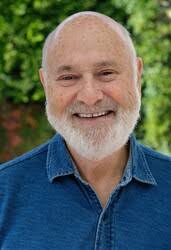 Rob Reiner, film director and actor, died on 14 December Rob Reiner, film director and actor, died on 14 December
Rob Reiner made his mark behind the camera, yet his acting always got the laughs. We grew up with Michael “Meathead” Stivic on "All in the Family", then spotted him in "Sleepless in Seattle" and "The Wolf of Wall Street".
Directing paid the bills, acting kept it fun.
Reiner died on December 14, 2025. His wife, photographer Michele Singer, died with him. It appeared they had been murdered.
Their son, Nick Reiner, has been arrested and charged with their murders.
[Simon & Schuster]

Stanley Baxter, comedian, died on 11 December
The Scottish comedian and actor Stanley Baxter died on December 11, 2025, aged 99, a few months shy of 100, which feels rude for someone with his timing.
Baxter in his 90s [The Stage]
You might not have seen him chasing Hollywood cheques, but you’ve felt his fingerprints on British comedy (like "The Stanley Baxter Show", "The Stanley Baxter Picture Show", "The Stanley Baxter Series" and "Mr Majeika"). He also voiced Gofer in "The Thief and the Cobbler".
Baxter created extravagant and expensive productions that, along with those of Morecambe and Wise, became staples of Christmas and New Year television in the UK.
 Baxter’s most cherished impressions were of Noël Coward, Mae West, Dora Bryan, Bette Davis and Queen Elizabeth II. Baxter’s most cherished impressions were of Noël Coward, Mae West, Dora Bryan, Bette Davis and Queen Elizabeth II.
His female impersonation mimicked body language as well as vocal inflections.
Baxter finally revealed at the age of 94 what many of his public had possibly already assumed: that he was gay.
Baxter as a woman [The Critics' Circle]
“There are many gay people these days who are fairly comfortable with their sexuality,” he told The Daily Mail.
"I’m not. I never wanted to be gay. I still don’t. Anyone would be insane to choose to live such a very difficult life. The truth is, I don’t really want to be me."
I remember watching him on telly as a child and finding him hilarious. He has a great legacy. A shame he didn't reach his "ton".
End of year endword
December deaths in 2025. From BB to Baxter. Just five celebrity deaths that affected me, out of the 840 reported up to the close of play yesterday, 29 December..
Links
Chris Rea ~ Driving Home For Christmas (1986)
CULTURA | Muere la actriz Brigitte Bardot a los 91 años, un icono "que elevó" del cine francés
The Cure - Friday I'm In Love
The Stanley Baxter Hour (1982)
When Harry Met Sally - Restaurant Scene
© The History Man
Photos:
Discogs, El Periodico, Facebook, La Nueva Mañana, SensaCine, Simon & Schuster, The Critics' Circle, The Guardian, The Stage, Vogue, Wikipedia
Thanks:
BBC, The Guardian, Wikipedia, YouTube
Tags:
"All in the Family", animal rights activist, "Auberge", BAX, BBC, BB, Brigitte Bardot, Chris Rea, Discogs, "Driving Home for Christmas", El Periodico, Facebook, Gofer, La Nueva Mañana, "Love Amongst Ruin", Michael “Meathead” Stivic, Michele Singer, Middlesbrough, "Mr Majeika", Nick Reiner, "opted out", Paul Whitelock, PB, Perry Bamonte, racist remarks, REA, recluse, RR, SensaCine, Simon & Schuster, "Sleepless in Seattle", Stanley Baxter, The Critics' Circle, The Cure, The Guardian, The Stage, "The Thief and the Cobbler", "The Wolf of Wall Street", Vogue, Wikipedia
 0
Like
Published at 8:40 AM Comments (0)
0
Like
Published at 8:40 AM Comments (0)
Today is the 47th Birthday of the post-Franco Constitution
Saturday, December 6, 2025
 47 years ago 88% of the Spanish people voted in a referendum to approve the new Constitution, three years after the death of General Franco, dictator of Spain since the end of the Civil War in 1939 until his demise in 1975, some 36 years in total. 47 years ago 88% of the Spanish people voted in a referendum to approve the new Constitution, three years after the death of General Franco, dictator of Spain since the end of the Civil War in 1939 until his demise in 1975, some 36 years in total.
 Franco had "adopted" Don Juan Carlos de Borbon y Borbon, grandson of the last king of Spain, Alfonso XIII, who abdicated in 1933 when Spain became a republic, and "groomed" Juan Carlos to be the next monarch on Franco's death. Franco had "adopted" Don Juan Carlos de Borbon y Borbon, grandson of the last king of Spain, Alfonso XIII, who abdicated in 1933 when Spain became a republic, and "groomed" Juan Carlos to be the next monarch on Franco's death.
The new king's inauguration took place two days after the dictator died, on November 22nd 1975.
The young Juan Carlos [Getty Images]
A note on Constitutions
Most democracies have a written constitution. The only exception I know is the United Kingdom, which relies on legal precedent.
Spain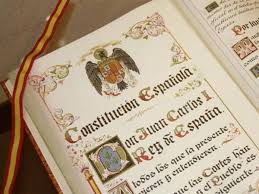
A young constitution, it has already undergone three changes: when Spain joined the European Union; when Felipe VI became king; and when Franco was effectively erased from Spain's history.
[El Confidencial]
Austria
Estabished after the end of World War II, it has already had over 100 amendments.
USA
The US Constitution, signed into law in 1789, has had a number of amendments, but the original remains unchanged.
Other countries:
France, Germany, Italy, Netherlands, Scandinavia and former eastern bloc countries all have constitutions. Other democratic countries too.
United Kingdom:
The UK does not have a written constitution. The rules and regulations are subject to the law of precedent. The Magna Carta, a document signed at Runnymede in 1215, is the nearest thing the UK has.
After Franco died what happened?
What Franco would not have expected was that the new king would lead the way in restoring Spain to full democracy within just three years, a relatively short space of time,
Attempted coup d'etat
In 1981 Lt. Col. Antonio Tejero and a group of 200 guardia civil and military stormed Las Cortes, the Spanish Parliament. Shots were fired but no-one was hurt.
The officers held the parliamentarians and ministers hostage for 18 hours, during which the King denounced the coup in a public television broadcast, calling for rule of law and the democratic government to continue.
The royal address fatally undermined the coup, and the hostage-takers surrendered the next morning and all deputies were freed.
A simultaneous coup attempt, executed by Captain General Jaime Milans del Bosch in Valencia, also failed.
Tejero, Milans del Bosch and a third conspirator, General Alfonso Armada, were sentenced to thirty years in prison. In 1988 the Spanish Supreme Court suggested pardoning Armada and Tejero; the government of Felipe González pardoned the former.
What ha ppened many years later could not have been foreseen. ppened many years later could not have been foreseen.
In June 2014 Juan Carlos I abdicated in favour of his son Felipe, who became el Rey Felipe VI.
Then stories of extra-marital affairs, back-handers, kick-backs and corruption began to circulate in the media and the Rey Emerito fled into exile.
A court case in London was inconclusive, so Juan Carlos returned to his exile in The Middle East. He had become persona non grata in Spain. Even his son, Felipe VI, has formally disowned him.
Juan Carlos now, a frail old man [El Mundo]
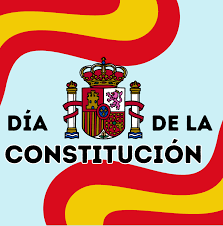
[image courtesy of Calendarr]
Links:
Día de la Constitución – what a disappointment!
The Curmudgeon
Día de la Constitución (España) - Wikipedia, la enciclopedia libre
Qué se celebra el 6 de diciembre y por qué se le llama el Día de la Constitución Española
Día de la Constitución Española, en directo los actos | Vídeo
© The History Man
Pix:
Calendarr, El Confidencial, El Mundo, Paul Whitelock
Thanks:
BBC, La 1, RNE, RTVE, Sky News, Wikipedia
Tags:
1975. 1978, 47, 88%, Alfonso XIII, back-handers, Civil War, constitution, corruption, democracy, dictator, dictatorship, Don Juan Carlos de Borbon y Borbon, extra-marital affairs, Felipe, Franco, Juan Carlos, Magna Carta, Paul Whitelock, referendum, republic, Rey Emerito, Rey Felipe VI, The Curmudgeon, The History Man,
 1
Like
Published at 4:55 PM Comments (0)
1
Like
Published at 4:55 PM Comments (0)
The Truth About Franco
Sunday, November 30, 2025
 At the time of the 50th anniversary of the death of Franco - he died on 20th November 1975 - I can't believe how many positive articles are being posted about the Franco years. The most worrying thing is that young people who weren't even born, are hankering after better times and they think those were under Franco. At the time of the 50th anniversary of the death of Franco - he died on 20th November 1975 - I can't believe how many positive articles are being posted about the Franco years. The most worrying thing is that young people who weren't even born, are hankering after better times and they think those were under Franco.
[BBC]
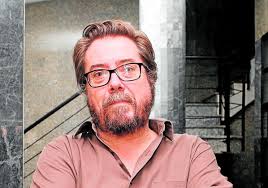 Troy Nahumko, Canadian, is a freelance writer, teacher and teacher trainer, living in Caceres, Extremadura. Troy Nahumko, Canadian, is a freelance writer, teacher and teacher trainer, living in Caceres, Extremadura.
Writing in SUR in English on November 28th, Troy tells us:
[Hoy]
"..... in today's Spain, a curious myth has seeped into the groundwater: that 'under Franco we lived better'. Astonishingly, a chunk of Spaniards under 24 hold the view that a cheerless, censorious dictatorship, the political equivalent of poison ivy, was a golden age of prosperity and serenity."
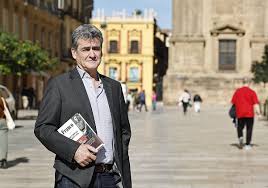 Giles Tremlett, biographer, historian and journalist has lived in Madrid for 30 years. In an interview with Diario Sur's Regina Sotorrío to mark the publication of his new book 'Franco: The Dictator Who Shaped a Country', the Englishman says: Giles Tremlett, biographer, historian and journalist has lived in Madrid for 30 years. In an interview with Diario Sur's Regina Sotorrío to mark the publication of his new book 'Franco: The Dictator Who Shaped a Country', the Englishman says:
[Diario Sur]
"[The secret of Franco's success] ..... is based on three things. One is that he's not as mediocre as he's made out to be. Intellectually, yes, but in terms of command, of political manoeuvering, not at all. Secondly, he's an incredibly ambitious character. It's not that he wanted power, he wanted all the power, forever. And thirdly, a military man doesn't need charisma. If I'm a general, it doesn't matter that I'm short with a high-pitched voice, everyone has to bow down before me. Military charisma is all about here (he taps his shoulder, where rank and medals would be on show) and it doesn't matter what you look like."
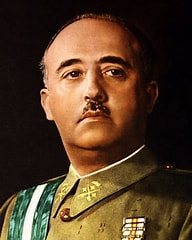 I am a keen student of Spanish history and its politics, and I regard myself as well-informed about the Civil War and the Franco dictatorship. I am a keen student of Spanish history and its politics, and I regard myself as well-informed about the Civil War and the Franco dictatorship.
I experienced five years living in Spain under Franco, and then another five decades after the country transformed into a democracy. I have owned property here since 2001 and emigrated here in 2008.
[Wikipedia]
So, I have experienced the austerity and lack of freedom of Franco's brutal fascism, as well as the difficult early years of the Transition.
 Spain joining the EU made a huge difference as the country qualified for massive grants for infrastructure projects, as well as educational exchanges and study visits. Spain joining the EU made a huge difference as the country qualified for massive grants for infrastructure projects, as well as educational exchanges and study visits.
[European Commission]
  I've read both George Orwell and Ernest Hemingway and enjoyed what they wrote about that period of Spain's history. I've read both George Orwell and Ernest Hemingway and enjoyed what they wrote about that period of Spain's history.
But, let's face it, both were flawed personalities, so their literary legacies are questionable to say the least.
Orwell had psychological problems and Hemingway shot himself.
Orwell [Wikipedia] His only book about the Civil War [Amazon]
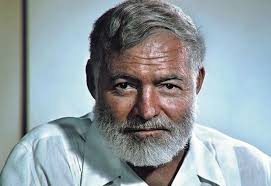 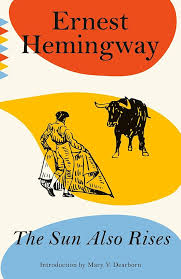 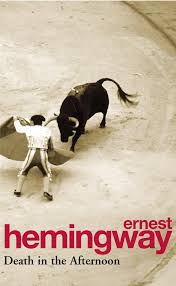 
Hemingway [Acento] Important works by Hemingway [Amazon]
What do I think of Franco?
For me,  he was arguably worse than Hitler and Mussolini, his fascist contemporaries. he was arguably worse than Hitler and Mussolini, his fascist contemporaries.
Mussolini was a joke, strung up by his own people, and Hitler committed suicide.
L to R: Mussolini, Franco, Hitler [La Hora Digital]
Franco carried on and died a natural death in 1975, aged 82.
From 1939 until 1975 he continued to murder dissidents.
 The man was despicable, but, because he had the support of the Catholic Church, the Army and the landed gentry, gained a certain kudos. The man was despicable, but, because he had the support of the Catholic Church, the Army and the landed gentry, gained a certain kudos.
Spain's transformation to a constitutional monarchy and full democracy has happened in double quick time, rather remarkably.
Don Juan Carlos and Franco [Libertad Digital]
My Spanish neighbours, olive growers, wine-makers and livestock farmers, were socialist for seven decades since the Civil War ended. Lately they have switched to PP. Unbelievable!
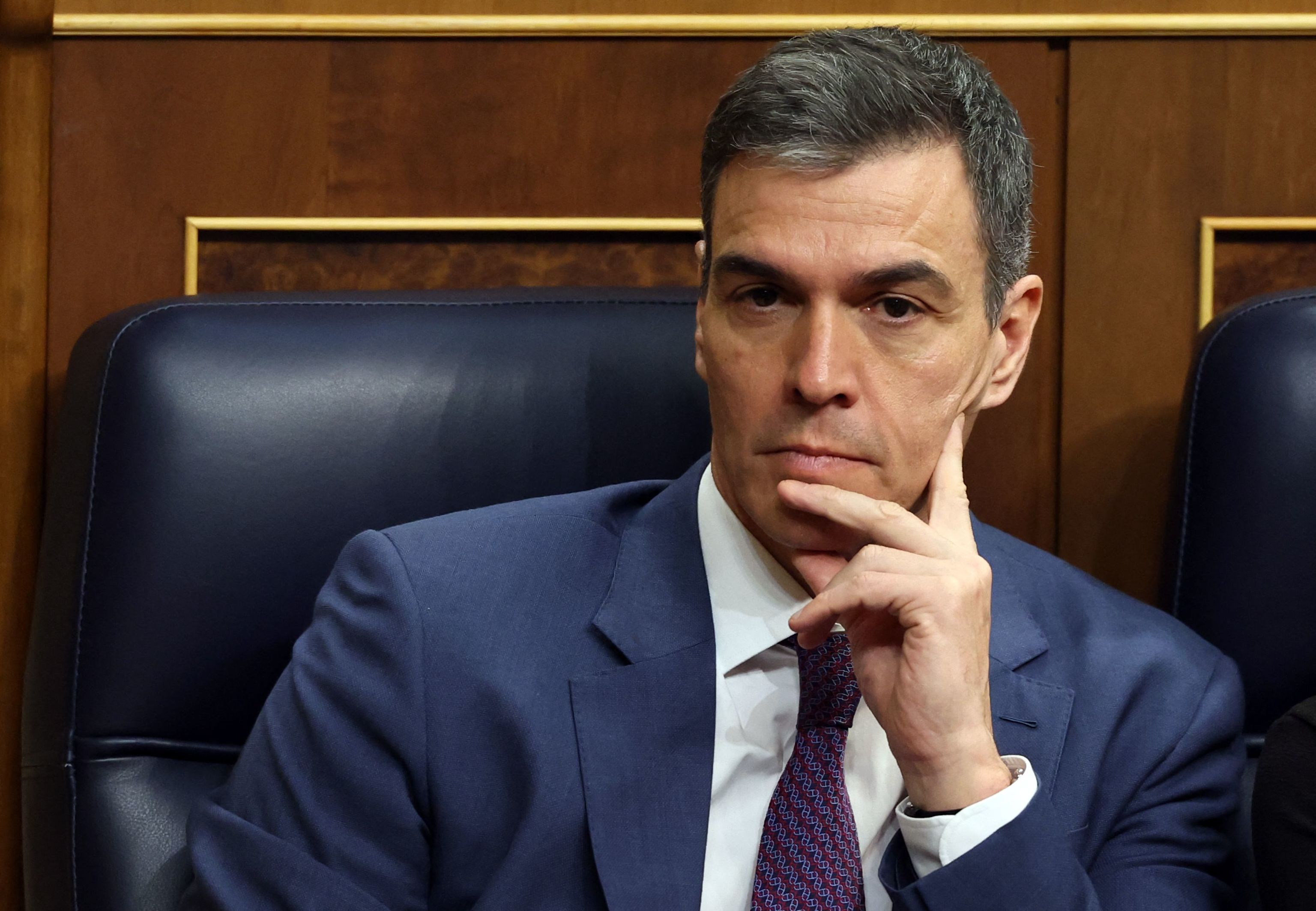 I am just about the only supporter of the current government of Pedro Sanchez around these parts. The Spanish prime minister is smart, intelligent, and young. I am just about the only supporter of the current government of Pedro Sanchez around these parts. The Spanish prime minister is smart, intelligent, and young.
He is also a fluent English-speaker, unlike all of his predecessors. I reckon he is the best PM Spain has had since democracy began. All the others were flawed/corrupt/inept.
[El Mundo]
Second best? Probably Felipe Gonzalez.
But, this is only my opinion .....
 John Collins, in a letter to the editor of SUR in English, wrote that he came to Spain for the first time in 1967 to study in Barcelona. John Collins, in a letter to the editor of SUR in English, wrote that he came to Spain for the first time in 1967 to study in Barcelona.
"The atmosphere in the city was tense. ..... I left after a while for Madrid, a different world, very much Generalisimo territory."
[Facebook]
Collins met and married a Spanish lady from a family of franquistas. With this intimate insight he has formed a different view to many of us British folk.
"Franco certainly ruled with an iron fist, but whether he was really a dictator is another question ..... The thing about living in Spain during Franco is there were three things, discipline, courtesy and security. Sadly all three have disappeared in modern Spain."
Collins spends much less time in Spain now "..... than I did when the Generalisimo was here."
 Axarquía resident Joan Fallon, the author of "Daughters of Spain" (a series of frank interviews giving a dramatic picture of what it was like to be a woman living in Spain under Franco's regime), said she believes children of today should learn about what life was like in the dictatorship. Axarquía resident Joan Fallon, the author of "Daughters of Spain" (a series of frank interviews giving a dramatic picture of what it was like to be a woman living in Spain under Franco's regime), said she believes children of today should learn about what life was like in the dictatorship.
"History is about people and their lives: I believe that young Spaniards deserve to know why such a war would break out in the first place and what kind of lives their great-grandparents lived before, during and afterwards.
[Facebook]
"The civil war and the dictatorship are vital parts of Spanish history and should not be withheld from youngsters because those years will subsequently have had an affect on their lives. How can the youth of today understand their country if this period of their history is withheld from them?" she asked.
Malaga resident Juan Jiménez, whose father was a staunch Franco supporter, said that he believed that, "as bad as it was", it should never be forgotten.
"This was a terrible era of Spain's history, but it is our history and it cannot be ignored," he said.
Daniel González, whose grandfather died during the conflict, disagreed, saying "it is time to forget". "Why do we have to keep dragging the Franco atrocities up. He is dead and should be left that way. Educating youngsters is one thing, but holding events to mark the death of this dictator is absurd," he said.
© The History Man
Links:
50 Years After Franco’s Death, Spain Confronts Its Dark Past | TIME
British author and Hispanist Giles Tremlett speaks out on Franco on 50th anniversary of Spanish dictator's death | Sur in English
Fifty years on | Sur in English
Franco dead 50 years!
Giles Tremlett, hispanista: «El desconocimiento de Franco hace que sea un debate de blanco o negro, no hay matices» | Diario Sur
Should Franco fade into a mere footnote in Spanish history? | Sur in English
The great Franco revival circus | Sur in English
Images:
Acento, Amazon, BBC, Diario Sur, El Mundo, European Commission, Facebook, Hoy, La Hora Digital, Libertad Digital, Wikipedia
Thanks:
Daniel González, Giles Tremlett, Joan Fallon, Juan Jiménez, Liz Parry, SUR in English, TIME magazine, Tony Bryant, Troy Nahumko
Tags:
Acento, Amazon, BBC, "Daughters of Spain", Diario Sur, El Mundo, European Commission, Facebook, Hoy, La Hora Digital, Libertad Digital, Paul Preston, TIME magazine, Wikipedia
 1
Like
Published at 5:51 PM Comments (7)
1
Like
Published at 5:51 PM Comments (7)
50 years ago today since Franco's death
Thursday, November 20, 2025
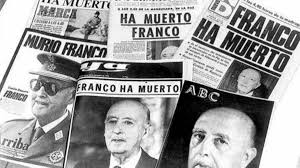 Today is the 50th anniversary of the death of the Spanish dictator General Franco. Today is the 50th anniversary of the death of the Spanish dictator General Franco.
On November 20th November 1975 it was announced that the man who had ruled Spain with an iron fist for 38 years had passed away in his sleep.
The Spanish Press announces Franco's death [Photo composition: X]
Franco had been in charge since the military coup which toppled the elected Republican government of the day and led to a bloody civil war (1936-1939).
The conflict and its aftermath claimed en estimated 500,000 lives.
What the Press and media are saying
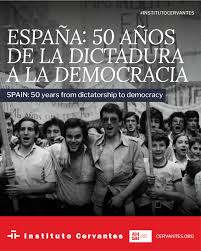 According to the national broadcaster rtve.es Spain passed from being an authoritarian regime to a full democracy, where freedom of expression, equality and diversity are an integral part of daily life. According to the national broadcaster rtve.es Spain passed from being an authoritarian regime to a full democracy, where freedom of expression, equality and diversity are an integral part of daily life.
The dictatorship was characterised by political and cultural repression, a lack of freedom of speech and the persecution of dissidents.
Franco's death marked the end of this time and the beginning of a new political era which culminated in the approval of a new constitution in 1978 and the consolidation of democracy in Spain.
[Instituto Cervantes]
Yet today there is a generation of young people who identify with Francoist principles and defend the regime.
Some experts claim that young people "lack solid and verified information and knowledge" about Francoism.
Radio Nacional de España (RNE) posed the question: What is left of Franco after 50 years?
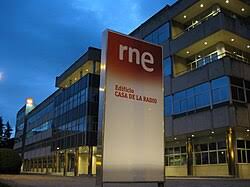 Their reporter Mar Lupion wrote earlier today on Facebook that vestiges of Francosism are alive and well in Spanish society. Their reporter Mar Lupion wrote earlier today on Facebook that vestiges of Francosism are alive and well in Spanish society.
According to the Centro de Investigaciones Sociológicas (CIS), about 20% of Spaniards between the ages of 18 and 24 consider the dictatorship to have been "good or very good".
This nostalgia for a historical period they didn't experience can be explained by several factors.
[Photo courtesy of Wikipedia]
Alina Danet, a sociologist and professor of Political Science at the University of Granada, maintains that young people "lack solid and reliable information and knowledge" about the Franco regime. This is because, after Franco's death, the dictatorship was "little discussed" in Spain.
Furthermore, young people feel that their generation has suffered a loss of status compared to their parents and grandparents.
Social media acts as a catalyst for the spread of hoaxes and myths about the Franco regime through trends that use elements of contemporary culture, such as memes, music, and manipulated videos, in a phenomenon known as "pop fascism".
Within this breeding ground, "historical revisionism" - the movement that revisits the dictatorship with the collaboration of journalists, essayists, and historians - plays a pre-eminent role.
Franco, from renowned military man to dictator for almost 40 years

Franco died on November 20, 1975, and was succeeded two days later by King Juan Carlos I, who assumed all the powers of the State:
He was head of government, head of state, and commander-in-chief of the Armed Forces.
Last ever photo of Franco 12 Oct 1975 [EFE/SVB]. To his right is Don Juan Carlos de Borbon, Franco's nominated successor
Mª Carmen Cruz Martín explains: "With the victory of the so-called Nationalists, Francisco Franco established a military dictatorship in Spain and ruled the country with an iron fist for almost four decades, between 1939 and 1975."
Who was Francisco Franco?
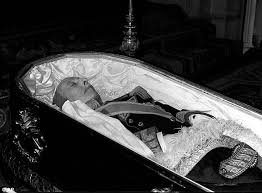 Francisco Franco Bahamonde was head of state until the day of his death, on November 20, 1975; head of government until 1973, when he handed over that baton of command to Carlos Arias Navarro, and commander-in-chief of the Armed Forces. Francisco Franco Bahamonde was head of state until the day of his death, on November 20, 1975; head of government until 1973, when he handed over that baton of command to Carlos Arias Navarro, and commander-in-chief of the Armed Forces.
On coins of that era, he was depicted as "Leader of Spain by the Grace of God."
[Photo: The Daily Mail]
He was part of the military leadership that staged the 1936 coup against the government of the Second Republic, which subsequently led to the Civil War.
For three years, Spain was embroiled in a conflict that divided the country into two factions. With the victory of the Nationalist faction on April 1, 1939, Franco took over all state powers.
Military Career
 Born in Ferrol (A Coruña) in 1892 into a middle-class family, Francisco Franco was the second of five children. Born in Ferrol (A Coruña) in 1892 into a middle-class family, Francisco Franco was the second of five children.
Following in his father's military footsteps, Franco entered the Infantry Academy of Toledo in 1907.
His military career was marked by the Rif War in Morocco, where he was stationed between 1912 and 1926.
He was head of the Legion, and in 1926 he was promoted to Brigadier General, becoming the youngest general in Europe. In 1935, he was appointed Chief of the General Staff.
[Photo: Wikipedia]
Following the Popular Front's victory in the February 1936 elections, the government removed generals suspected of plotting a coup, and Franco was subsequently assigned to the Canary Islands.
In July 1936, he joined the coup d'état known as the National Uprising, led by Generals José Sanjurjo and Emilio Mola, who were dissatisfied with the Second Republic and desired a more conservative and religious Spain.
The coup d'état began when the military garrisons of Ceuta, Melilla, and Tetouan rebelled against the Second Republic.
Although the coup failed in cities like Madrid and Barcelona, a Civil War ensued with two sides: the Republicans - defenders of the Republic and comprised of left-wing parties - and the rebels, also known as the Nationalists - made up of right-wing parties, the bourgeoisie, and anti-republican military officers.
More than half a million people from both sides would die in the conflict.
Soon, Franco became the leader of the rebels, and on October 1, 1936, he was proclaimed head of state and caudillo (leader) of Spain.
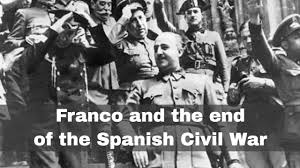
[Youtube]
 The Civil War in Spain served as a rehearsal for the Axis powers for World War II. Franco's side received support from Adolf Hitler's Nazi Germany and Benito Mussolini's Fascist Italy, which helped Franco to achieve significant victories in key battles. The Civil War in Spain served as a rehearsal for the Axis powers for World War II. Franco's side received support from Adolf Hitler's Nazi Germany and Benito Mussolini's Fascist Italy, which helped Franco to achieve significant victories in key battles.
Mussolini, Franco and Hitler [La Hora Digital]
[Ed: the bombing by the German Luftwaffe of Guernica near Bilbao being the best example]
Finally, on April 1, 1939, Franco announced from the city of Burgos that the war had ended after having "defeated the Red Army" and "the nationalist troops having achieved their final military objectives".
The Franco Dictatorship
At the end of the Civil War, Franco took over all the powers of the State and established a military dictatorship, characterized by censorship and repression of those who were against the new regime, the curtailment of rights and freedoms, total control of the State and a policy of international isolation during the first years of his government.
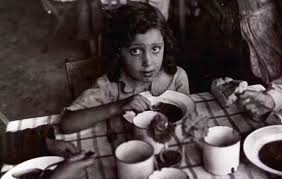 Precisely because of this international isolation and the economic difficulties the country faced in the postwar period, the early years of the dictatorship were marked by famine. To confront the economic crisis, an autocratic regime was established, an economic system based on an attempt at self-sufficiency. Precisely because of this international isolation and the economic difficulties the country faced in the postwar period, the early years of the dictatorship were marked by famine. To confront the economic crisis, an autocratic regime was established, an economic system based on an attempt at self-sufficiency.
Post-war hunger [The Olive Press]
However, food shortages were widespread, and in response, a rationing system was introduced to control available food and prevent hoarding. Each person was allocated a specific quantity of products.
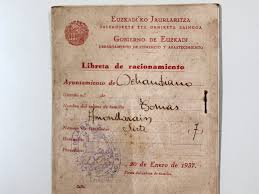 So, on May 14, 1939, the Franco regime pioneered the ration book, which specified the quantity and type of goods to which each Spaniard was entitled. This system remained in place until June 1, 1952. So, on May 14, 1939, the Franco regime pioneered the ration book, which specified the quantity and type of goods to which each Spaniard was entitled. This system remained in place until June 1, 1952.
Alongside the economic problems, the repression against the defeated led many people to go into exile abroad. Those who remained in the country and did not support Franco's regime began to suffer harsh controls. Many were imprisoned, and many others were executed.
Spanish post-Civil War ration book [Dreamstime]
In fact, Franco's regime was signing death warrants until very shortly before the dictator's death. Less than two months before Franco died, five members of the Basque Terrorist Group ETA (Euskadi Ta Askatasuna) and the communist FRAP (Frente Revolucionario Antifascista y Patriota) were executed.
Political parties were banned, and only the Falange Española Tradicionalista and the Juntas de Ofensiva Nacional Sindicalista (FET y de las JONS) were permitted. Linguistic and sexual diversity were persecuted, and women lost rights they enjoyed during the Republic, as they were required to be under "male guardianship" during the Franco regime.
Franco's dictatorship was heavily influenced by Catholicism, and the Church played a significant role in the regime.
And although Spain declared itself neutral in World War II, Franco had a close relationship with Hitler and Mussolini.
Precisely because of this proximity to European fascist regimes, Spain found itself isolated internationally after the end of World War II.
During the Cold War, it managed to partially emerge from this isolation thanks to its rapprochement with the Western bloc and because of its opposition to the Soviet bloc.
The Succession
And although Francoism began its decline on November 20, 1975,  with the death of the dictator, its end had begun to take shape years earlier. with the death of the dictator, its end had begun to take shape years earlier.
In 1969, Franco had named as his successor the Infante Juan Carlos - who would later become King Juan Carlos I - son of the legitimate heir to the throne, Don Juan de Borbón, and grandson of the late Alfonso XIII, the last monarch before the Second Republic.
The young Juan Carlos [Getty Images]
With his oath before the Cortes, Juan Carlos became Prince of Spain on July 22, 1969.
In June 1973, Franco appointed Admiral Luis Carrero Blanco as head of the government, but in December of that same year, he was assassinated in an ETA attack in Madrid.
Finally, the dictator decided to appoint Carlos Arias Navarro as Prime Minister.
In the months leading up to his death, Franco suffered from various illnesses. While he was ill, on a couple of occasions, Juan Carlos assumed the role of Acting Head of State. The first was on July 9, 1974, when the dictator was hospitalized for treatment of phlebitis. The second was in October 1975, after Franco fell ill and suffered several heart attacks until he finally died on November 20.
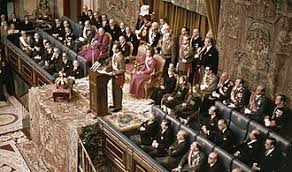 King Juan Carlos was sworn in before the Cortes on November 22. Following Franco's death, Spain underwent a period known as the Transition, which led the country to become a parliamentary monarchy, hold its first democratic elections in over 40 years in 1977, and adopt a Constitution in 1978. King Juan Carlos was sworn in before the Cortes on November 22. Following Franco's death, Spain underwent a period known as the Transition, which led the country to become a parliamentary monarchy, hold its first democratic elections in over 40 years in 1977, and adopt a Constitution in 1978.
Juan Carlos is sworn in as king [Wikipedia]
Last Word
I have strong feelings about Franco. When I first came to Spain in 1970, to San Sebastian (Gipuzkoa) I fell in love with the country, the people and the lifestyle, despite Franco still being in control.
I studied Spanish to honours degree level and obviously got to learn more about Franco's murderous and vindictive regime.
I despise the man and what he stood for. He is arguably as bad as Hitler and Mussolini were, yet he was the only one of that deadly trio who died a natural death. Hitler committed suicide in his Berlin bunker and Mussolini was strung up by his own people.
I find it right that Franco has been thoroughly discredited and that the Spanish government is trying to erase all traces of him.
"Franco is dead!" Let's leave it at that!
 But Spain needs to be wary of VOX, the right wing extremist party, and the ridiculous behaviour of many young Spaniards in wishing for a return to an evil, repressive Spain that they never knew! Spain was NOT better under Franco! But Spain needs to be wary of VOX, the right wing extremist party, and the ridiculous behaviour of many young Spaniards in wishing for a return to an evil, repressive Spain that they never knew! Spain was NOT better under Franco!
Santiago Abascal of VOX [Photo: VOX]
© The History Man
Photos:
ABC, BBC, Diario de Sevilla, Dreamstime, Getty Images, Instituto Cervantes, La Hora Digital, SVB, The Guardian, The Olive Press, Wikipedia, Youtube, VOX, X
Acknowledgements:
Sources: Alina Danet, EFE, Mª Carmen Cruz Martín, Mar Lupion, MSN, Paul Whitelock, RNE, rtve.es, Wikipedia
Translations: Paul Whitelock
Tags:
1936-1939, 1978, 500,000 lives, ABC, Adolf Hitler, Alina Danet, authoritarian regime, Benito Mussolini, bloody civil war, BBC, CIS, Centro de Investigaciones Sociológicas, constitution, democracy, Diario de Sevilla, dictatorship, diversity, Dreamstime, EFE, equality, Francoism, Francoist, freedom of expression, freedom of speech, full military coup, Getty Images, "historical revisionism", Instituto Cervantes, La Hora Digital, Mª Carmen Cruz Martín, Mar Lupion, MSN, Paul Whitelock, persecution of dissidents, political and cultural repression, "pop fascism", professor of Political Science, RNE, Radio Nacional de España, Republican government, sociologist, SVB, The Guardian, The Olive Press, University of Granada, Wikipedia, Youtube, VOX, X
 1
Like
Published at 9:52 PM Comments (3)
1
Like
Published at 9:52 PM Comments (3)
Franco dead 50 years!
Monday, November 17, 2025
 Generalisimo Francisco Franco Bahamonde, the fascist dictator who led Spain for 39 years, from 1936 until his death in 1975, "celebrates" the 50th anniversary of his death later this week, on Thursday November 20th. Generalisimo Francisco Franco Bahamonde, the fascist dictator who led Spain for 39 years, from 1936 until his death in 1975, "celebrates" the 50th anniversary of his death later this week, on Thursday November 20th.
He will not be mourned by many. He has been thoroughly discredited for his murderous "reign".
[Photo courtesy of Wikipedia]
According to a recently passed law, all statues and memorials should have been torn down. Streets, barrios and squares should have been re-named and town names which refer to him have been required to drop the reference to him, eg his birthplace, until recently known as El Ferrol del Caudillo, is now just plain old El Ferrol. town names which refer to him have been required to drop the reference to him, eg his birthplace, until recently known as El Ferrol del Caudillo, is now just plain old El Ferrol.
[La Voz de Galicia]
His body has been removed from the mausoleum he had built to honour the nationalist dead, Valle de los Caidos, and has been re-interred elsewhere, alongside his widow.
Franco and I
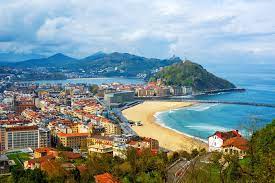 I never met him, of course, but, for the last five years of his life, I was in San Sebastian (Guipuzcoa), his choice of summer holiday destination. I never met him, of course, but, for the last five years of his life, I was in San Sebastian (Guipuzcoa), his choice of summer holiday destination.
The Basque seaside resort filled with Franco's stormtroopers before, during and after his annual stay. These were the dreaded and, back then, brutal guardia civil.
San Sebastian [The Independent]
The Basque language, euskera, was banned at that time.
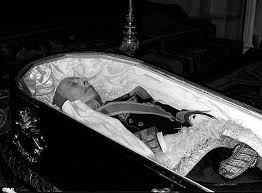 We were well into the Autumn Term at the Roman Catholic Grammar School where I was Head of Spanish, when one morning our Spanish assistant from Valencia, Vicente, came in all smiles. We were well into the Autumn Term at the Roman Catholic Grammar School where I was Head of Spanish, when one morning our Spanish assistant from Valencia, Vicente, came in all smiles.
Franco was dead, at last. Vicente immediately changed his name to Vicent, his real name in the banned Valenciano dialect.
[Daily Mail]
Franco's legacy
General Franco was chosen to lead the military coup that unseated the legitimate republican government of Spain over the course of a brutal civil war which tore the country to bits.
After the war, Franco and Spain were isolated from the rest of Europe. Their only allies were the USA, who took advantage to set up a major military base and nuclear facility in Rota (Cádiz).
 The Caudillo paved the way for the restoration of the monarchy by nominating Juan Carlos de Borbon y Borbon as his successor. The Caudillo paved the way for the restoration of the monarchy by nominating Juan Carlos de Borbon y Borbon as his successor.
On Franco's death he became King Juan Carlos I and led the way to restoring democracy to Spain, something Franco would not have expected.
There is a claim that Franco set up the Paradores hotel chain, whereby ancient monuments were restored and turned into quality hotels, but that may be an urban myth.
I liked and fell in love with Spain under Franco's rule, but, let's be honest, the country is better now.
Democracy, equal opportunities, contraception, divorce, gay marriage, and smoking bans have all come into force in the last five decades.
And, according to recent press reports, Spain has the second most successful economy in the world after Singapore.
Final comment
Some of my neighbours - andaluces - wish he was still around. Most weren't even born when he was in power.
What is the matter with these people?
They would rather have VOX and/or PP with the dangerous Santiago Abascal or the inept Alberto Nuñez Feijoo, instead of the young, virile, intelligent, English-speaking socialist Pedro Sanchez, arguably the best prime minister Spain has had since Franco's demise.
  
Santiago Abascal [Vox] Alberto Nuñez Feijoo [El Periodico] Pedro Sanchez [El Mundo]
I rest my case.
© The History Man
Pictures:
ABC, Daily Mail, El Mundo, El Periodico, La Voz de Galicia, Libertad Digital, The Independent, VOX, Wikipedia
Acknowledgements:
Diario Sur, Malaga Hoy, Paul Whitelock, Wikipedia
Tags:
1975, ABC, Alberto Nuñez Feijoo, Civil War, Daily Mail, Diario Sur, El Ferrol, El Mundo, El Periodico, Franco, Juan Carlos I, La Voz de Galicia, Libertad Digital, Malaga Hoy, monarchy, paradores, Paul Whitelock, Pedro Sanchez, November 20th, Rota, San Sebastian, Santiago Abascal, The History Man, The Independent, USA, Valle de los Caidos, VOX, Wikipedia
 0
Like
Published at 10:21 AM Comments (2)
0
Like
Published at 10:21 AM Comments (2)
Remembrance Day
Sunday, November 9, 2025
 Remembrance Day (also known as Poppy Day owing to the tradition of wearing an artificial poppy) is a memorial day observed in Commonwealth member states since the end of the First World War. This day honours armed forces members who died in the line of duty. Remembrance Day (also known as Poppy Day owing to the tradition of wearing an artificial poppy) is a memorial day observed in Commonwealth member states since the end of the First World War. This day honours armed forces members who died in the line of duty.
War grave in Northern France [WW1 Cemeteries]
The day is also marked by war remembrances in several other non-Commonwealth countries.
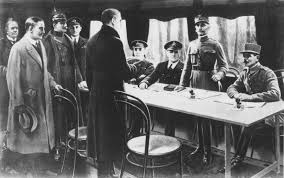 In most countries, Remembrance Day is observed on 11 November to recall the end of First World War hostilities. Hostilities ended "at the 11th hour of the 11th day of the 11th month" of 1918, in accordance with the Armistice signed by representatives of Germany and the Allied countries. The First World War formally ended with the signing of the Treaty of Versailles on 28 June 1919. In most countries, Remembrance Day is observed on 11 November to recall the end of First World War hostilities. Hostilities ended "at the 11th hour of the 11th day of the 11th month" of 1918, in accordance with the Armistice signed by representatives of Germany and the Allied countries. The First World War formally ended with the signing of the Treaty of Versailles on 28 June 1919.
Signing the Armistice [Britannica]
The origins
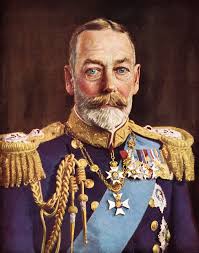 The initial Armistice Day was observed at Buckingham Palace, commencing with King George V hosting a "Banquet in Honour of the President of the French Republic" during the evening hours of 10 November 1919. The initial Armistice Day was observed at Buckingham Palace, commencing with King George V hosting a "Banquet in Honour of the President of the French Republic" during the evening hours of 10 November 1919.
The first official Armistice Day was subsequently held on the grounds of Buckingham Palace the following morning.
During the Second World War, many countries changed the name of the holiday. Member states of the Commonwealth of Nations adopted Remembrance Day, while the US chose the name Veterans Day.
King George V [Discover Britain]
United Kingdom
In the United Kingdom, the main observance is Remembrance Sunday, held on the Sunday nearest to 11 November. There is a National Service of Remembrance in London, as well as other services and ceremonies in the regions.
 Typically, poppy wreaths are laid by representatives of the Crown, the armed forces, and local civic leaders, as well as by local organisations including ex-servicemen organisations, cadet forces, the Scouts. Guides, Boys' Brigade, St John Ambulance and the Salvation Army. Typically, poppy wreaths are laid by representatives of the Crown, the armed forces, and local civic leaders, as well as by local organisations including ex-servicemen organisations, cadet forces, the Scouts. Guides, Boys' Brigade, St John Ambulance and the Salvation Army.
A two minutes' silence is also frequently incorporated into church services.
Poppy wreaths at the Cenotaph in London [BBC]
A personal note
 As a Scout Cub and later a Scout I was involved in Remembrance Day parades annually from a young age. As a Scout Cub and later a Scout I was involved in Remembrance Day parades annually from a young age.
Now, 60-odd years later, this date has become significant for me once again what with devastating wars and conflicts taking place throughout the world.
[BBC]
 Despite living in Spain, which does not commemorate the two World Wars, the country not having been involved in either war (officially!), I managed to get hold of a poppy following an appeal on Facebook ("Thanks, Fran!"). Despite living in Spain, which does not commemorate the two World Wars, the country not having been involved in either war (officially!), I managed to get hold of a poppy following an appeal on Facebook ("Thanks, Fran!").
I shall wear my poppy with pride today.
Yours truly this morning [selfie]
© The History Man
Images:
Britannica, BBC, Discover Britain, Paul Whitelock, WW1 Cemeteries
Acknowledgements:
Paul Whitelock, The History Man, Wikipedia
Tags:
armed forces, armistice, Boys Brigade, Britannica, BBC, cadet force, Commonwealth, cub scout, Discover Britain, First World War, Paul Whitelock, poppy, Poppy Day, remembrance day, St John Ambulance, Salvation Army, scout, scout cub, two minutes' silence, Wikipedia, WW1 Cemeteries
 0
Like
Published at 9:39 AM Comments (0)
0
Like
Published at 9:39 AM Comments (0)
11.11 on the 11/11
Friday, October 31, 2025
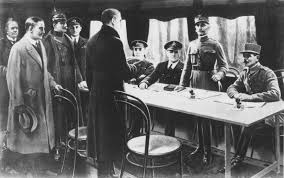 This was when the armistice which ended the First World War was signed, at 11 minutes past 11.00 am on the 11th November, 1918, bringing to an official end the Great War which had claimed the lives of millions of young men from Great Britain, France, the Netherlands, Belgium, Germany, Poland, Russia as well as from Australia, Canada, New Zealand, South Africa and other Commonwealth countries. This was when the armistice which ended the First World War was signed, at 11 minutes past 11.00 am on the 11th November, 1918, bringing to an official end the Great War which had claimed the lives of millions of young men from Great Britain, France, the Netherlands, Belgium, Germany, Poland, Russia as well as from Australia, Canada, New Zealand, South Africa and other Commonwealth countries.
The signing of the armistice in 1918 [Britannica]
 Curiously, this date is when the German Festival "Fasching" starts. This is an extravaganza of booze, debauchery, fancy dress, live music and stalls selling Bratwurst, Hamburger, Pommes (chips) and tacky souvenirs and craft products. Curiously, this date is when the German Festival "Fasching" starts. This is an extravaganza of booze, debauchery, fancy dress, live music and stalls selling Bratwurst, Hamburger, Pommes (chips) and tacky souvenirs and craft products.
[Photo: deutschland.de]
Me and this date
 I value the significance of Remembrance Sunday, which is the nearest Sunday to 11th November. I value the significance of Remembrance Sunday, which is the nearest Sunday to 11th November.
In England I took part from a young age, as a Cub Scout and later as a Scout, sometimes having the honour of bearing the flag of our troupe.
As an adult I sometimes attended the outdoor event in my town. If not, I would turn on the TV at 11.00 am to watch the ceremony at the Cenotaph in London.
Cub scouts on Remembrance Day [unattributed]
I always wore a poppy.
Since I've lived in Spain (17 years) I always tuned in to the BBC coverage on the telly. This year I decided I wanted to sport a British Legion poppy. I placed a message on WhatsApp asking if it was possible to get a poppy here in Spain.
I got lots of helpful replies, as a result of which I have a delightful hand-made poppy and a standard cellulose version is also on the way.
There are a number of places on the coast and in Gibraltar where they are available, too.
"Fasching"
This rather Bacchanalian festival in Germany is also enjoyable, although it has nothing to do with war (well, Germany lost both, didn't they!).
The most memorable Fasching for me was in 2003 when my daughter Amy was dispatched to Cologne for her compulsory year abroad (she studied German at Oxford), and she asked me to go with her to help her find accommodation.
 Well, we managed that in double quick time. Our time in Cologne coincided with Fasching, so off we went, my 20-year-old daughter and me, her 53-year-old dad. Well, we managed that in double quick time. Our time in Cologne coincided with Fasching, so off we went, my 20-year-old daughter and me, her 53-year-old dad.
Well, what fun we had! We drank far too much beer (I brought my daughter up to appreciate the good things in life!). But the best thing was, one of my favourite groups back then, Londonbeat, were performing in the open air. They were sensational.
[Youtube]
Endword
I shall proudly wear my "poppy" up until Remembrance Sunday. I shan't be going to Fasching in Germany, but I'll definitely pop "Londonbeat" on the stereo - for old times' sake!
Links
I've Been Thinking About You - LONDONBEAT @ZDF-Fernsehgarten - 05/06/2016
Londonbeat - I've Been Thinking About You (Official Video) [4K Remastered]
© The History Man (Paul Whitelock)
Pictures:
Britannica, deutschland.de, Youtube, ZDF-Fernsehgarten,
Tags:
armistice, Australia, Belgium, Bratwurst, Britannica, British Legion, Canada, Cenotaph, Cologne, Commonwealth countries, cub scout, deutschland.de, Fasching, First World War, France, Germany, Great Britain, Great War, Hamburger, Londonbeat, Netherlands, New Zealand, Paul Whitelock, Poland, Pommes, poppy, Remembrance Sunday, Russia, scout, South Africa, The History Man, Youtube, ZDF-Fernsehgarten,
 2
Like
Published at 7:42 PM Comments (0)
2
Like
Published at 7:42 PM Comments (0)
Spam post or Abuse? Please let us know
|
|